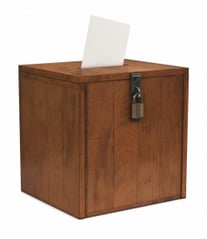The NLRB has, after much anticipation, issued its “ambush election” or “quickie election” final rule. A summary of the major provision in the rules can be found here. The rulemaking, which followed a long and tortured procedural path, is a major overhaul of the procedures used to conduct secret  ballot, union elections. These elections are an important path to union representation, and they will now occur more quickly after the election petition is filed. The result is not only harmful to employer interests, but to those of employees as well.
ballot, union elections. These elections are an important path to union representation, and they will now occur more quickly after the election petition is filed. The result is not only harmful to employer interests, but to those of employees as well.
In commenting on the changes, the NLRB majority state that they “will streamline Board procedures, increase transparency and uniformity across regions, eliminate or reduce unnecessary litigation, duplication and delay, and update the Board’s rules on documents and communications in light of modern communications technology.”
Two NLRB members, Miscimarra (R) and Johnson (R), however, dissented from the final rule. Their lengthy dissent begins with an introduction that captures many of the issues that the rules will likely raise, especially for employers. The dissenting members believe that, among other things, the rule:
- Has the “primary purpose and effect” to conduct union elections as quickly as possible;
- Impermissibly conducts elections now, and hearings later, an approach twice rejected by Congress;
- Requires employees to “vote now, understand later,” by shortening the time for employees to understand relevant issues;
- Curtails the right of employers, unions and employees to engage in protected speech;
- Fails to demonstrate that there is a need for the rule given that substantially more than 90% of all elections currently occur within 56 days of election petition filing; and
- Improperly diminishes the NLRB’s role in the election process.
For the labor professional, the substantial changes from current practice found in the rule will have a decided impact on how employers prepare for and lawfully respond to union organizing activity. For example, the rule requires employers to provide significantly more information to a union and to do so earlier in the process than was ever the case before. Moreover, handling the question of who gets to vote in the election, and thus who will be represented by the union, is one that should get attention even before union organizing activity begins. These are just two of the parts of the rule that employers would be well-advised to consider addressing proactively.
